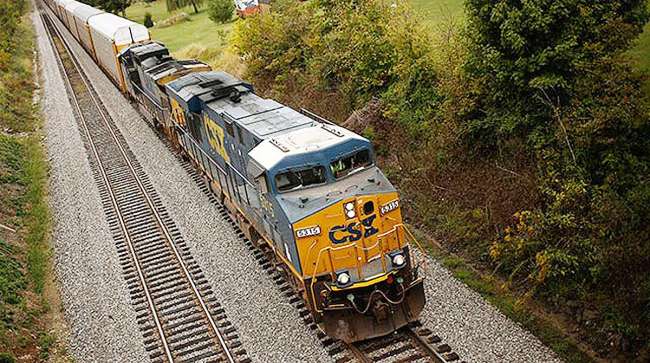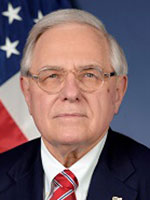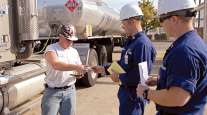Senior Reporter
TSA Requires Enhanced Training for Freight Railroads, Surface Transportation Operators

[Stay on top of transportation news: Get TTNews in your inbox.]
Freight railroads are among the transportation operations tasked with enhancing security training for certain employees as part of a recent mandate by the Transportation Security Administration.
Effective June 22, nearly three dozen freight railroads, as well as certain public transportation and bus operators, will be tasked with augmenting security training across their networks.
“Surface transportation systems are, by nature, open systems. Unlike the aviation environment, direct responsibility to secure surface transportation systems falls primarily on the system owners and operators,” the agency said in a March 26 announcement. “Many of these owners and systems have already enhanced their security baseline through voluntary measures, including actions supported by the Department of Homeland Security through funding provided under various grant programs.”
Surface Transportation 2020... by Transport Topics on Scribd
TSA indicated the curriculum must provide employees with training specific to observing, assessing and responding to terrorist-related threats and/or incidents. For instance, an owner-operator will be required to ensure employees in security-sensitive positions are trained on the appropriate method for reporting a security threat.
“By integrating and improving preparedness across all levels of government as well as the private and public sectors, we will stop terrorists from undermining our security and prosperity,” according to a notice in the Federal Register published March 23.
“TSA is requiring a training program that focuses on the specific knowledge provided to security-sensitive employees related to preparedness, observation, assessment and response,” the notice continued. “As a key aspect of security awareness is the ability to detect anomalies in the operating environment, the rule affords flexibility for owner-operators to develop and implement a program that addresses the above-required components in the context of their unique operational environments.”
Meanwhile, the agency indicated it would continue its work with stakeholders on existing programs designed to protect surface transportation networks.
According to the Association of American Railroads, North American Class I railroads train thousands of first responders annually, collaborate with agencies such as TSA, and have hazardous material safety teams and emergency response experts throughout the freight rail network. The Class I freight railroads include BNSF Railway, CSX Transportation, Grand Trunk Corp., Kansas City Southern Railway, Norfolk Southern Combined Railroad Subsidiaries, Soo Line Railroad and Union Pacific Railroad.

Batory
Meanwhile, Federal Railroad Administration Administrator Ronald Batory determined that the imminent threat and exposure to the coronavirus constituted an emergency situation as related to industry operations.
Relatedly, last month the House advanced to the Senate legislation meant to ensure transportation security officers (TSOs) fall under the rights and protections afforded to federal workers with similar tasks.
“This will position TSA to have a more experienced workforce with the proficiency needed to execute its national security mission and help it continue to mature as a homeland security agency,” said Rep. Bennie Thompson (D-Miss.), chairman of the Homeland Security Committee.
“Our TSOs have earned these rights, and it is unreasonable to deny these hardworking men and women the basic protections of federal civil service. I urge the Senate to quickly pass this legislation,” added Rep. Nita Lowey (D-N.Y.), chairwoman of the Appropriations Committee.
Want more news? Listen to today's daily briefing:


